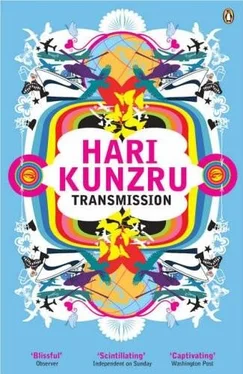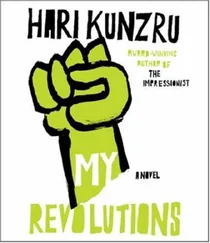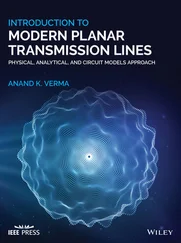Then Iqbal had phoned saying she was ill. And after Iqbal, Rajiv. For Rajiv to call! Faiza knew the situation must be serious. On the phone he had sounded worried. He said he did not believe there was anything wrong, just that for whatever reason she did not want to work. When Faiza spoke to her, she had sounded ill enough, telling stories of cold draughts and stomach aches. Faiza decided to be soothing. No sense in pressurizing her without knowing the cause. She was, after all, the key to everything. Only when Leela started to work seriously was Faiza able to sever ties with Zahir. The ape knew his only hold on them was his money. Without it the two of them had no other income but Leela’s acting. It was a situation that needed to be handled with care.
When Rajiv phoned back, Faiza counselled caution, but she agreed that this was not the time for the girl to be making trouble. When Baby Aziz had money in a picture, the time for trouble was never. Waiting for her travel agent to call back with fares, Faiza regretted letting Leela go away alone. It was an experiment she would not be repeating.
At the start of Leela’s career, Faiza had never left her side. Though she had given up her own ambitions to marry Zahir, she had kept in touch with the industry. She was not, she told the magazines, the kind of mother to live vicariously through her daughter. It was simply that, having been in the business herself, she was aware of the opportunities. Leela had talent just bursting to get out. To stunt its growth would be criminal. So she had overseen every photo shoot and interview, had chosen Leela’s clothes, her activities and her friends, spending day after day on baking-hot sets and night after night at parties and launches, showing her around, pestering producers and directors to give her a break.
Of course the child did not appreciate her work. In private she would cry, ask why she had to do the things her mother told her. She did not want to talk to all these old men. She did not want to wear such tight blouses, such filmy saris. It was an uphill struggle. What other daughter cried at being taken away from her school-books to go to a party?
In film circles, Faiza Zahir earned herself a reputation as a doting parent, a reputation she carefully nurtured through sentimental articles and mother-daughter magazine portraits. Seventeen-year-old Leela was often quoted on the subject of their mutual adoration. My maa is my best friend. I can’t bear to spend a day without seeing her. The absence of Mr Z. was occasionally the subject of malicious gossip, but on the whole the writers (and the millions of fans whose opinions they moulded) were awed by Leela’s beauty, the grace of her dancing, the way she had of conveying a sense that behind her perfect features and flawless skin was a well of emotion, an understanding of pain and tragedy.
Sometimes, Faiza found herself unnerved by her daughter’s increasing fame. She seemed to be floating free of all control. The money was flowing, they had extricated themselves from Zahir and his tedious steel factory, but at home Leela was withdrawn and Faiza jealous. The arguments became fierce, protracted.
‘I feel like I don’t even have a name! I’m not a person, just Leela Zahir’s mother!’
‘Well, I never wanted this!’
‘At least you could show me some gratitude!’
And so on, round and round. Sometimes one of them would smash something. Once the silly child swallowed some pills. Faiza had a discreet doctor and nothing ever came out in the press, but slumped on a waiting-room chair she did regret some of the things which had been necessary. That wizened old bag Gupta, for example. It must have been hard for a young girl. But she too had done difficult things. In this life, the sooner one ditched one’s silly notions about romance the better.
She took a shower in the poky little bathroom, then swung open the trunk and looked through her wardrobe for an appropriate on-set-in-Scotland outfit. When she had changed, she rang front desk to tell them to bring a car round.
It was one of those highland days when the sun filters down through the clouds in soft yellow threads and the world takes on a spiritual quality; when the moisture in the air refracts every beam of light, deviates every eyeline, opens up a gap in which things can exist unobserved.
Gaby had forgotten all about leaving. Shielding her eyes with a folder of production notes, she stood by a scaffolding tower, watching Leela Zahir dance her way along the battlements of Dimross Castle. Leela was dressed in emerald-green and carried a huge square of silk which billowed out behind her like a sail. She was followed by a squad of dancers in contrasting lilac, mirroring her moves as she pirouetted and swayed along the narrow walkway.
Loudspeakers had been rigged up at the base of the castle walls. Giant reflectors and thousand-watt lamps were trained at the battlements. The cracked asphalt of the castle car park was almost invisible beneath ranks of five-ton trucks and trailers and generators and catering vans, drawn up to besiege the girl in the green sari; an onslaught of sound and light. Rocky and Vivek were perched behind a camera on a hydraulic crane. Each time Rocky called action, the tiny platform reared towards the girl, who turned to face it and flung her arms wide in a gesture of ecstasy. Between takes the lights were dimmed, and figures appeared from behind turrets and crenellations to adjust clothing and make-up, to bring Miss Zahir a drink of water and a folding chair. Then the whole process was repeated, the amplified violins and high-pitched female voice, the blast of light, the moment of abandon.
It was extraordinary. Gaby had been on many film sets, but even from a distance she could feel Leela’s power over the camera. It was as if she had drawn this aggregate of people and equipment to her by force of will. The crew, like all crews bored and cynical as a matter of professional principle, seemed hypnotized.
This shot completed, they moved on to the next, positioning the camera to capture close-ups of Leela at the head of her troupe of dancers. Gaby skirted gingerly around a huddle of electricians wrestling lengths of cable into a distribution box, trying to spot Iqbal. If Leela was suddenly feeling her film-star self again, she might also be able to do a few interviews. In front of the visitors’ centre, an L-shaped wooden building which housed a ticket booth, the Scotch Mist Souvenir Shop and the Jac-o’-Bite Snackbar, there was a crowd of spectators, about equally divided between locals, press and Asian fans. A length of plastic tape separated them from the crew, but several of the photographers were wandering around the perimeter, taking telephoto shots of Leela and crouching down in front of laptops to wire them back to their agencies. They had varying degrees of success. As she watched, one stood up and skimmed his machine into the loch. It disappeared with a dull splash.
She found the producer with a red-faced man in a Barbour jacket, who stood leaning raffishly on a walking stick that was almost as tall as himself. The man’s brown corduroy trousers were tucked ostentatiously into a pair of thick socks, which in turn disappeared into a pair of stout brown leather boots. Iqbal was at his most insinuating, unctuously pointing out aspects of the production and describing the context of the scene in progress. ‘Very emotional song, My Lord,’ he was saying. ‘Heart strings will be tugged and guts wrenched, no doubt about it.’
This was, Gaby supposed, the Laird of wherever they were, the owner of Dimross Castle. As she approached, Iqbal waved to Rajiv Rana, who came sauntering up to be introduced. He was in costume, sporting an outfit of what could only be described as disco tweed, a riot of marshy-greens and acid-yellows topped with a deerstalker hat. There was an awkward moment as he caught sight of her and hesitated. The bastard was actually looking around for an escape route. Gaby was stunned. Who did he think he was? She had been doing him the favour, not the other way round. She controlled her anger and waited while Rajiv was introduced to the red-faced man.
Читать дальше











